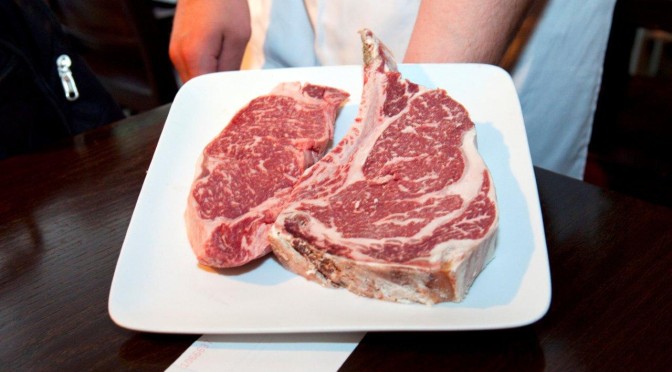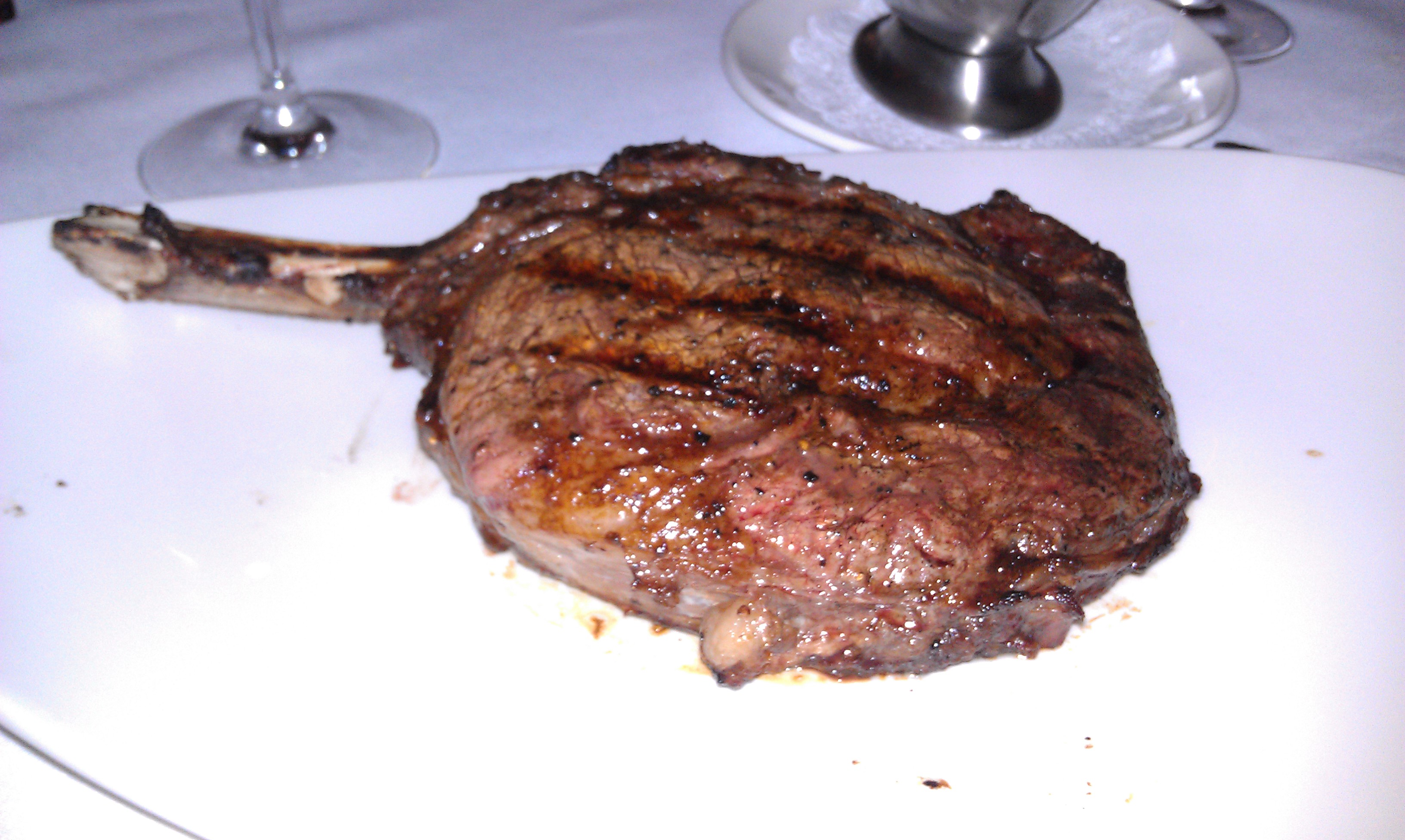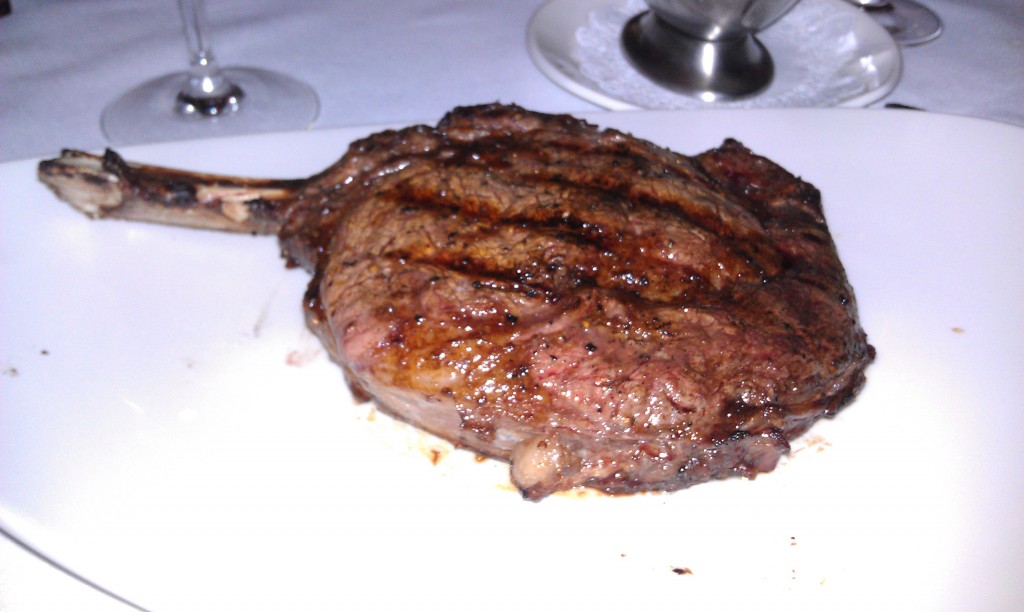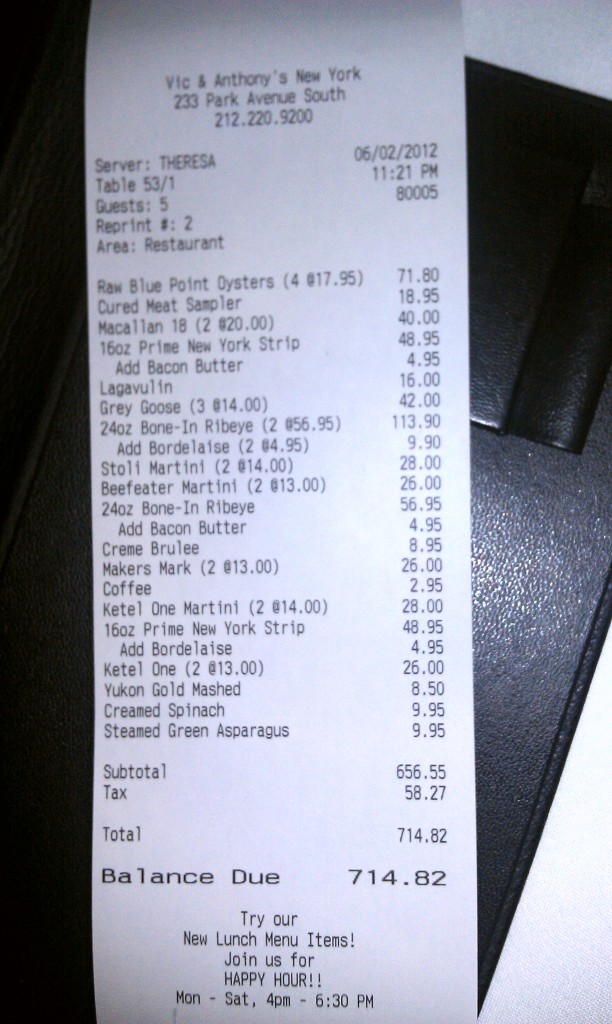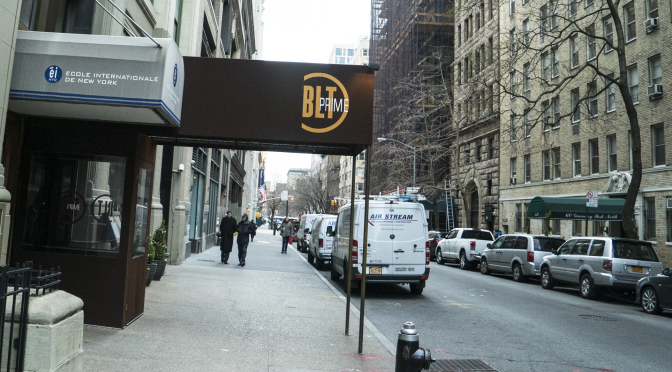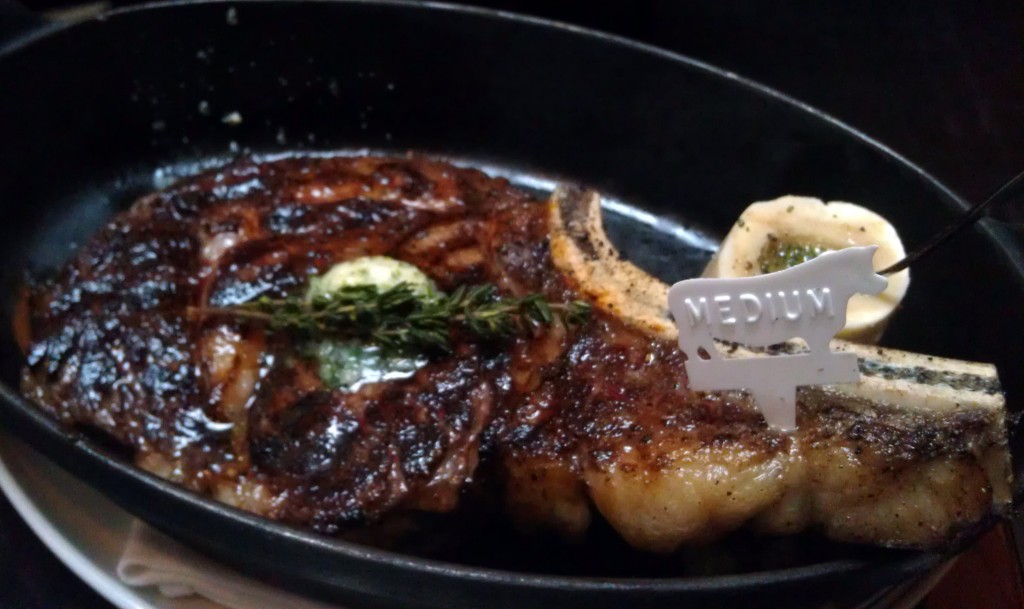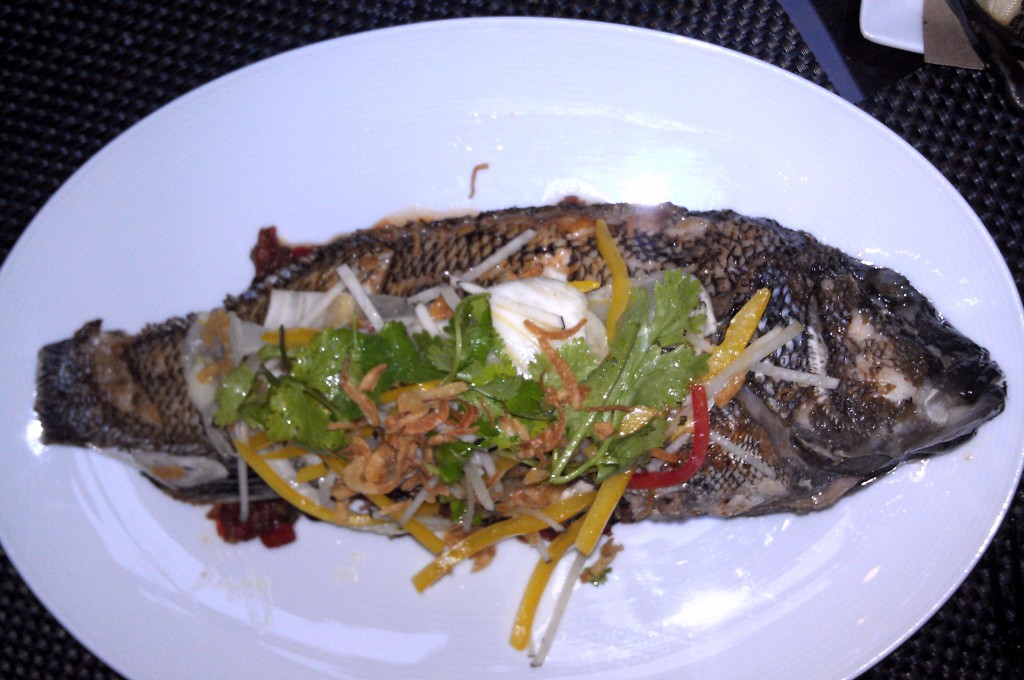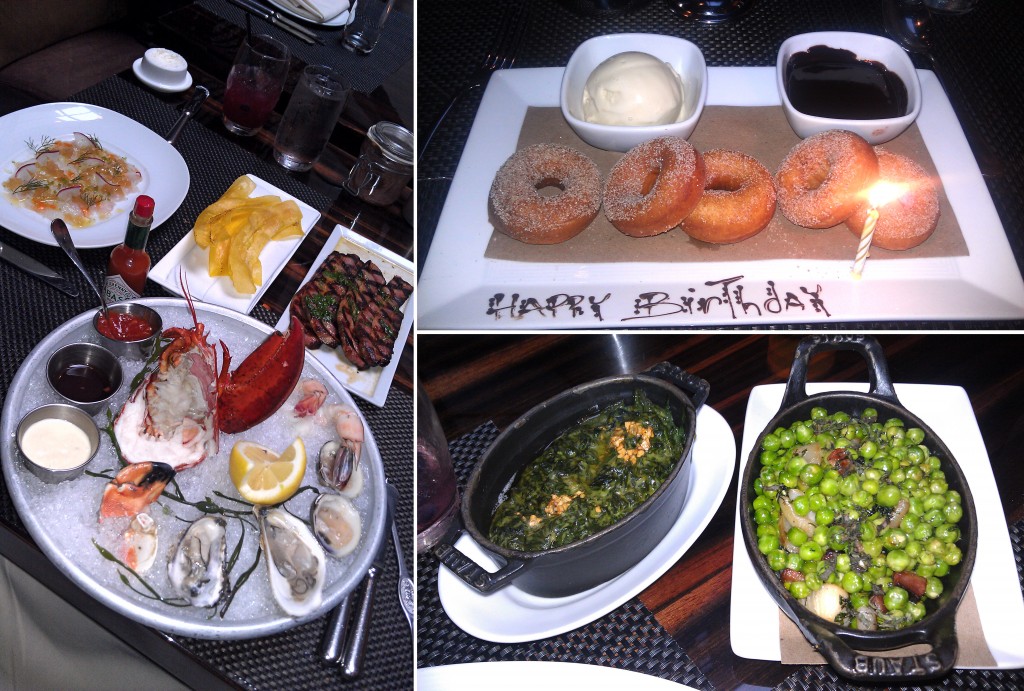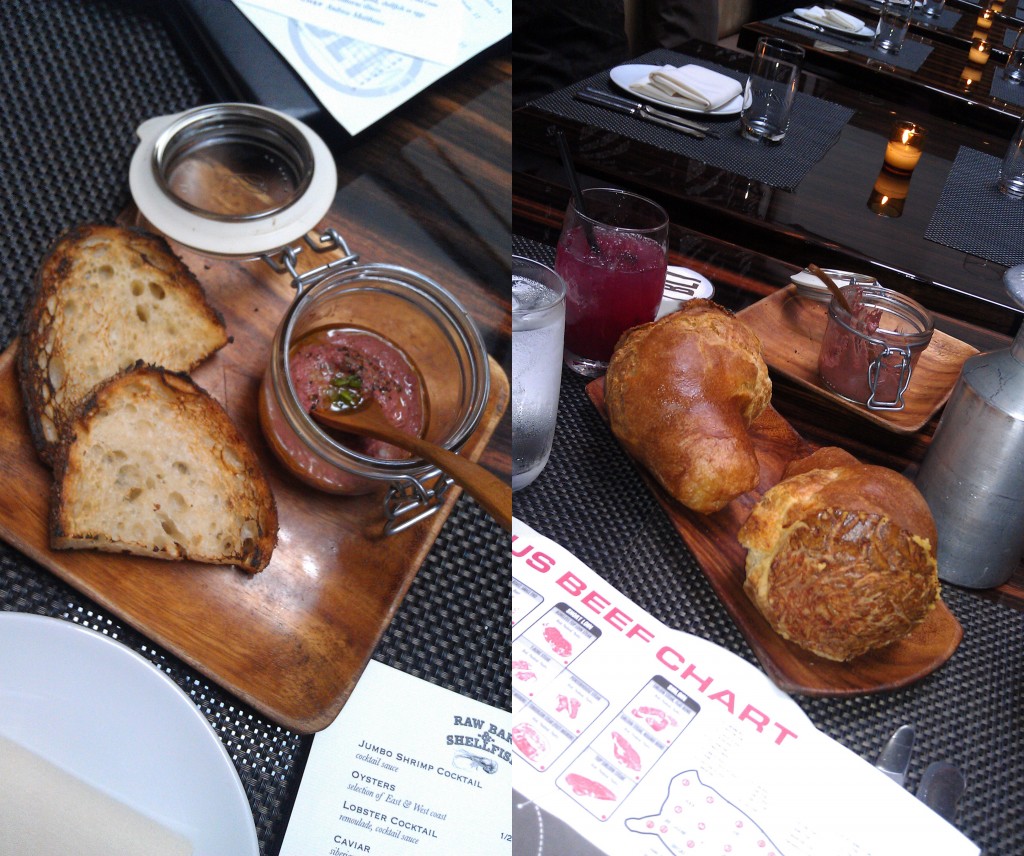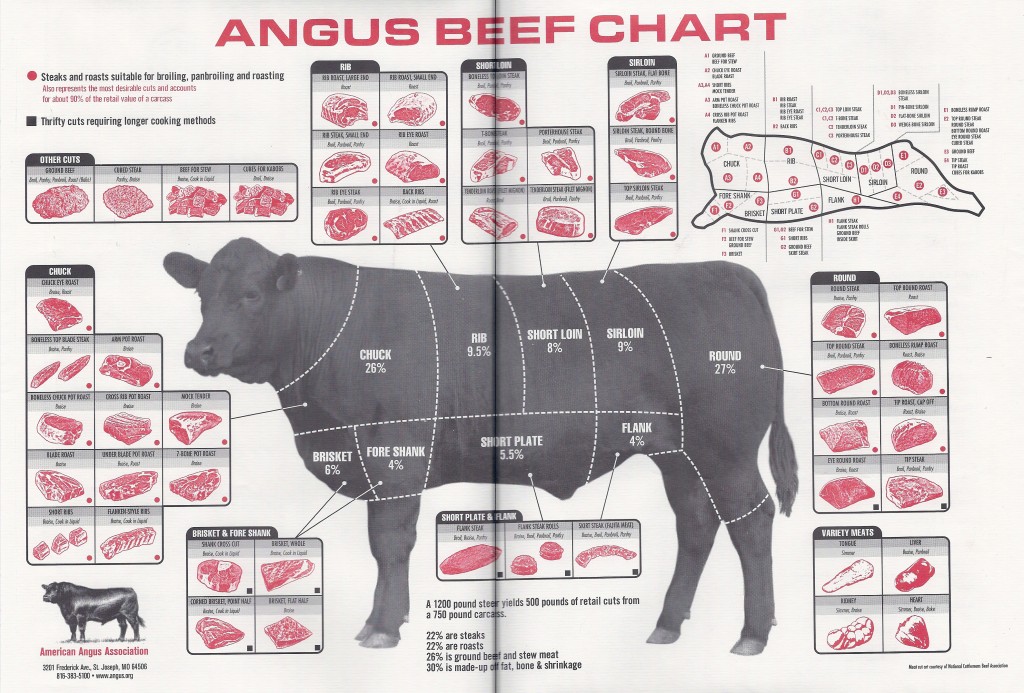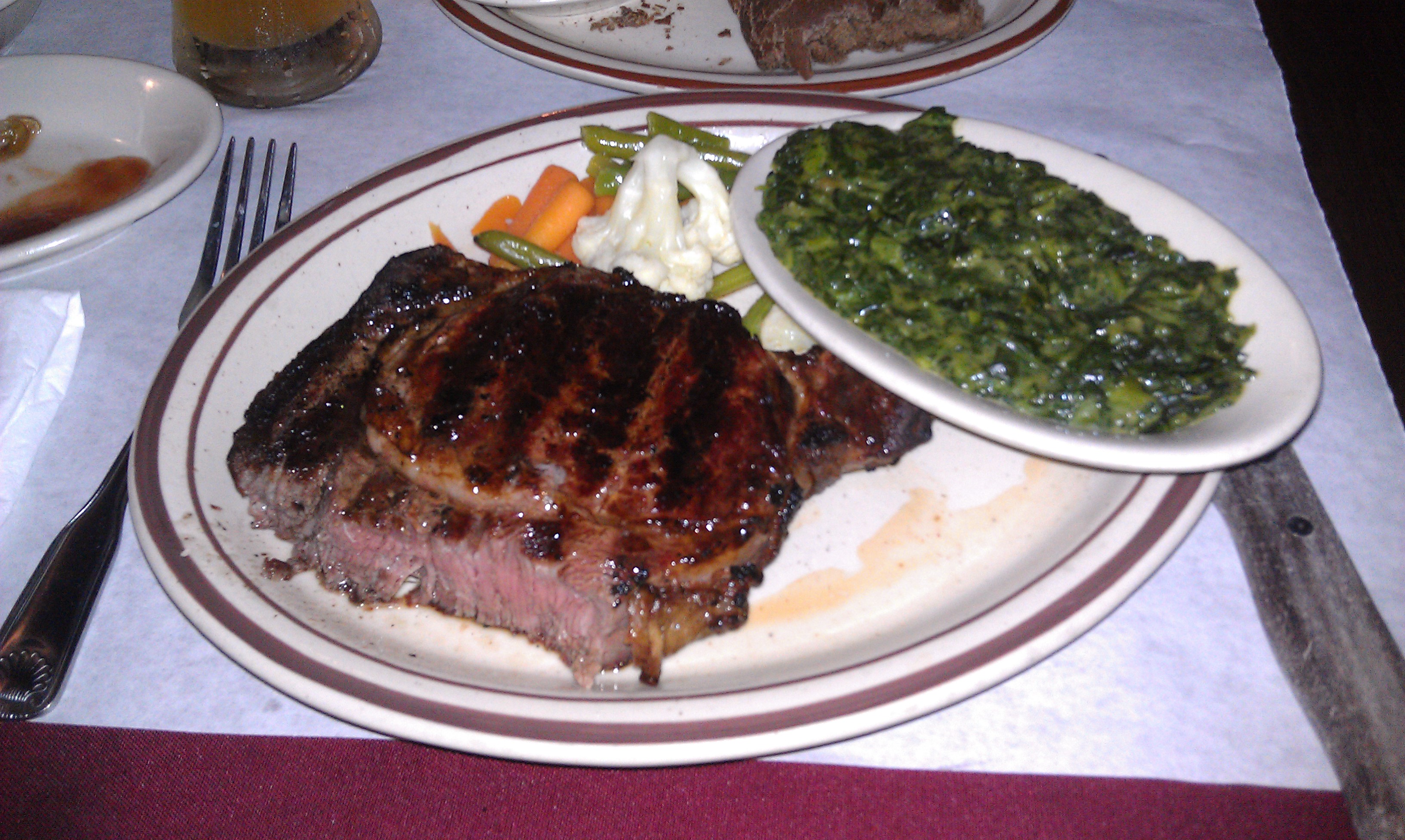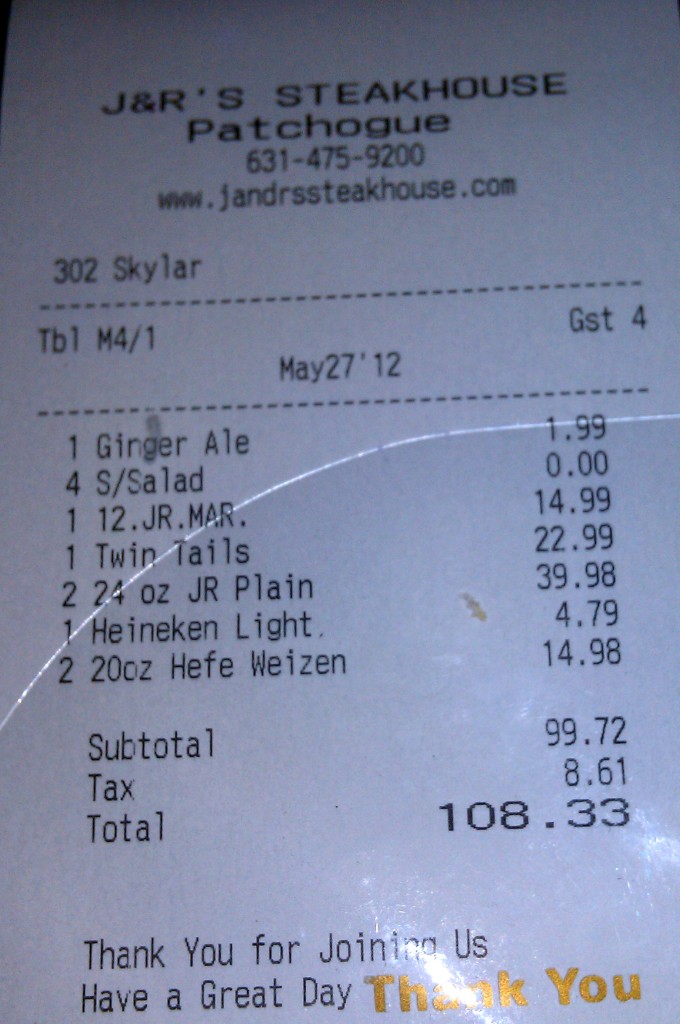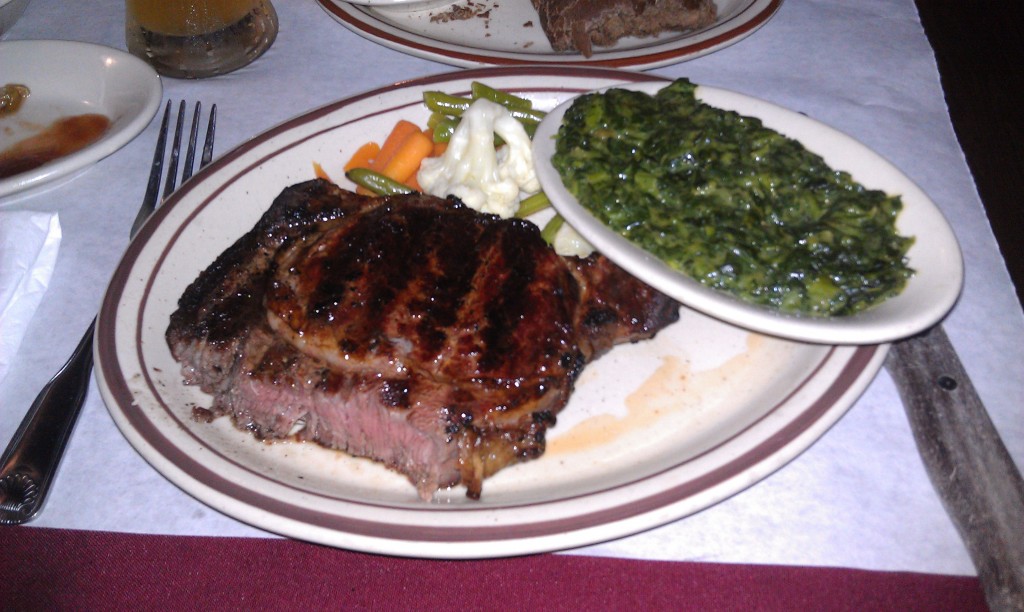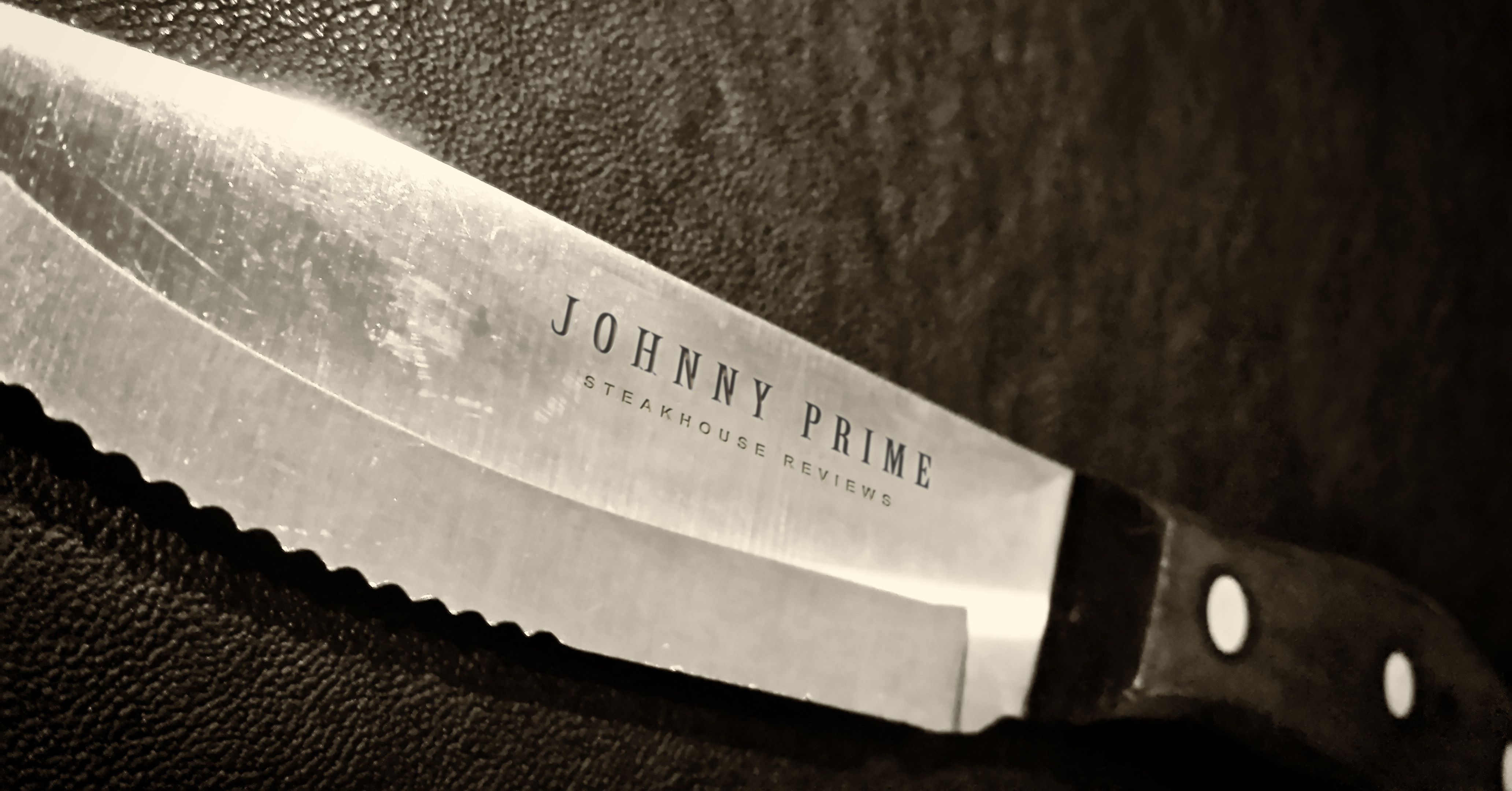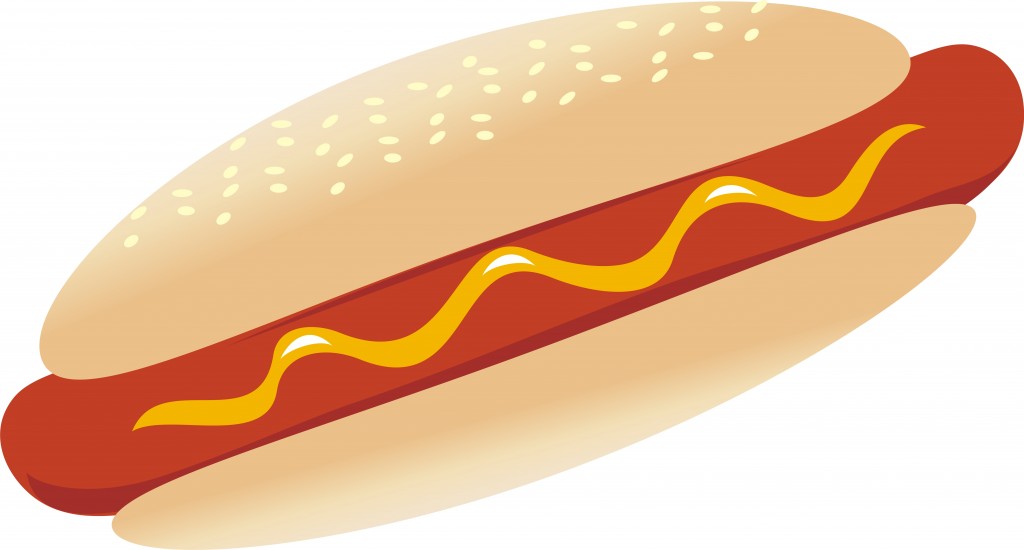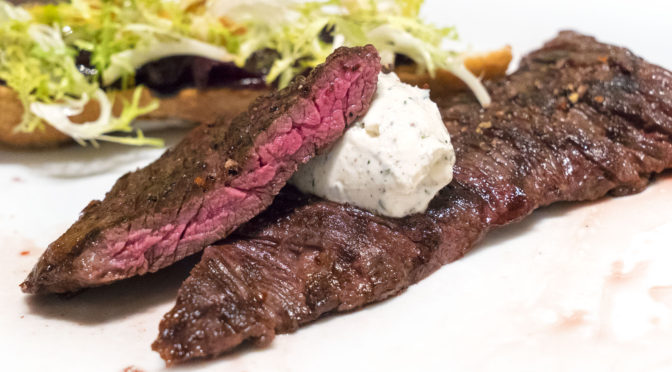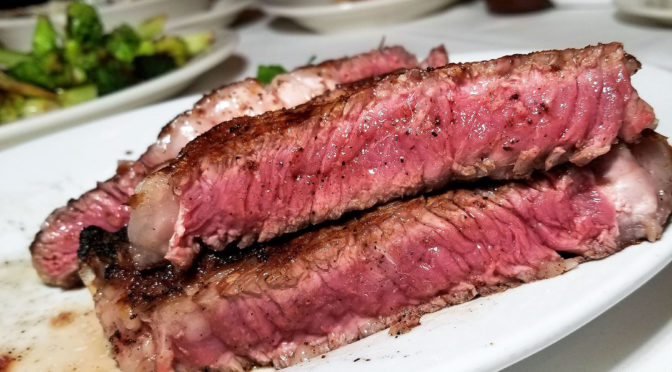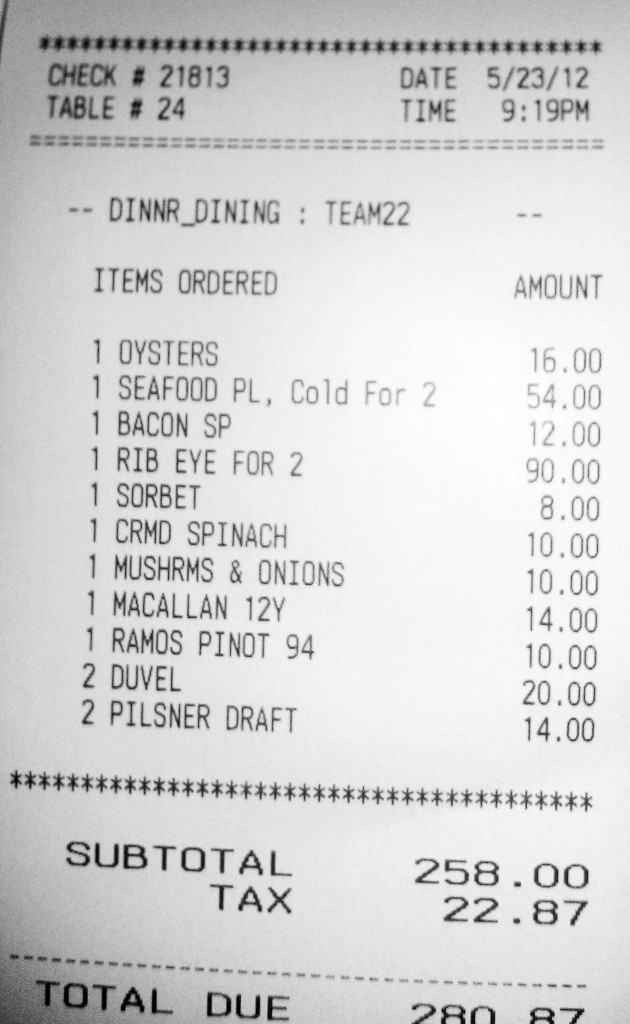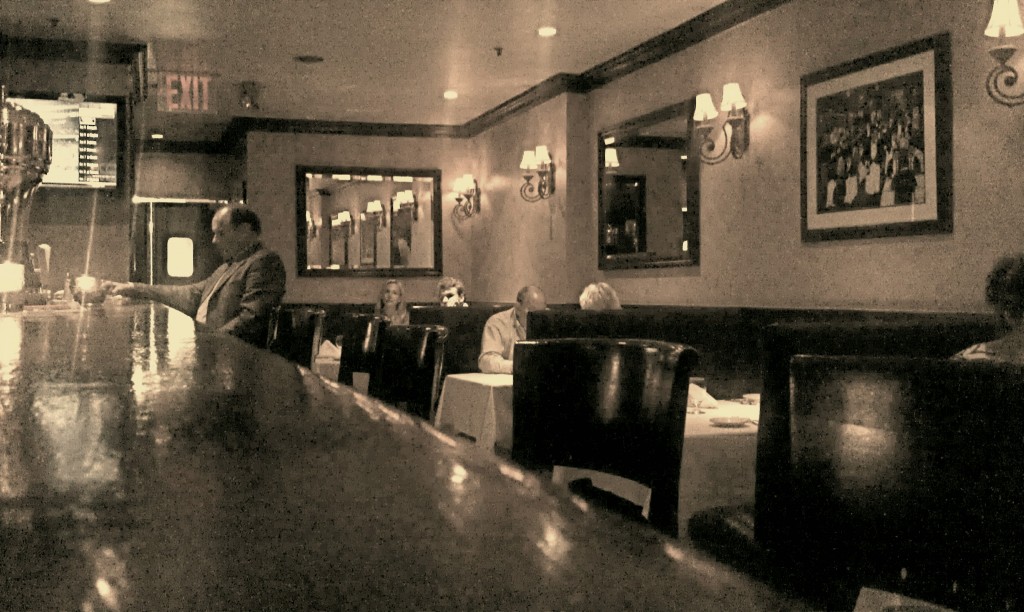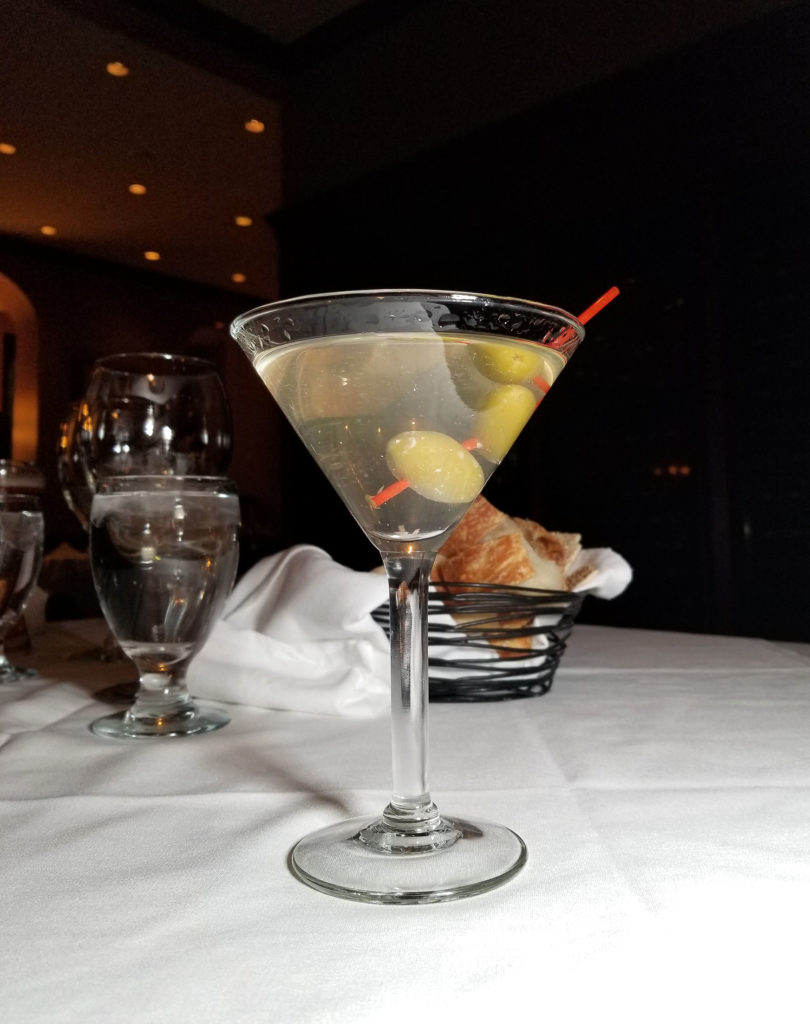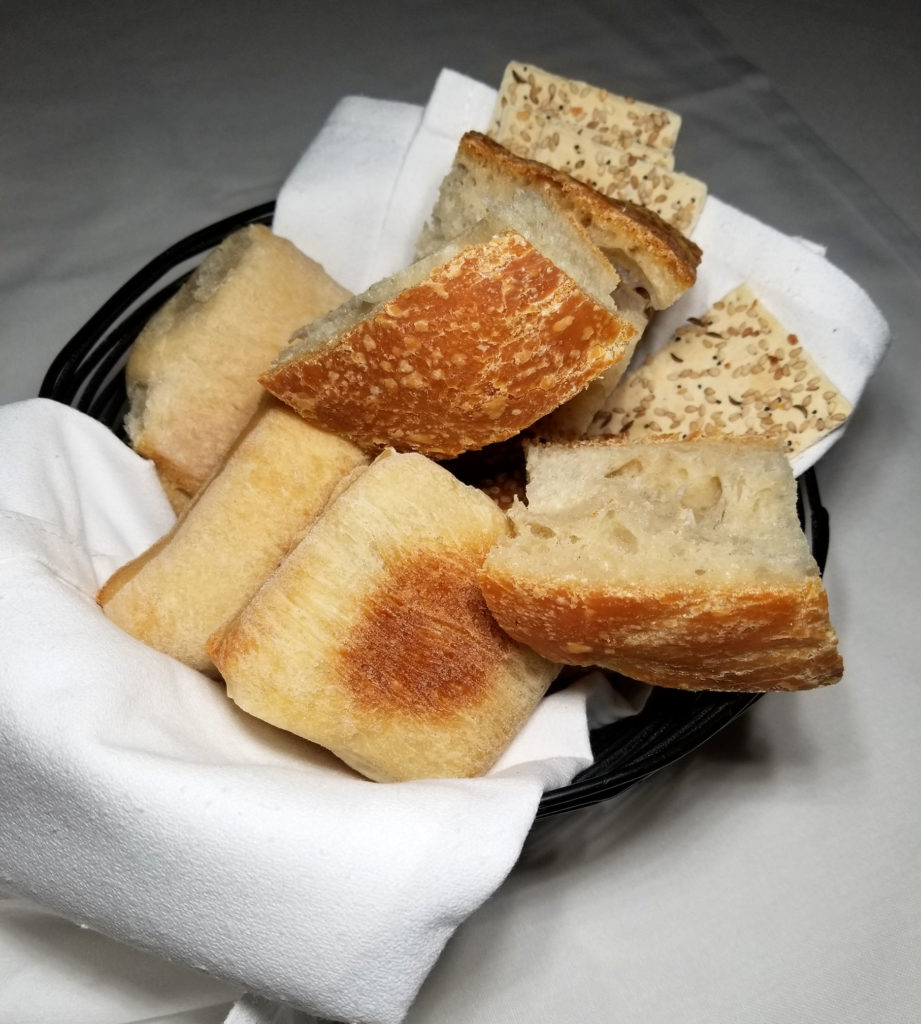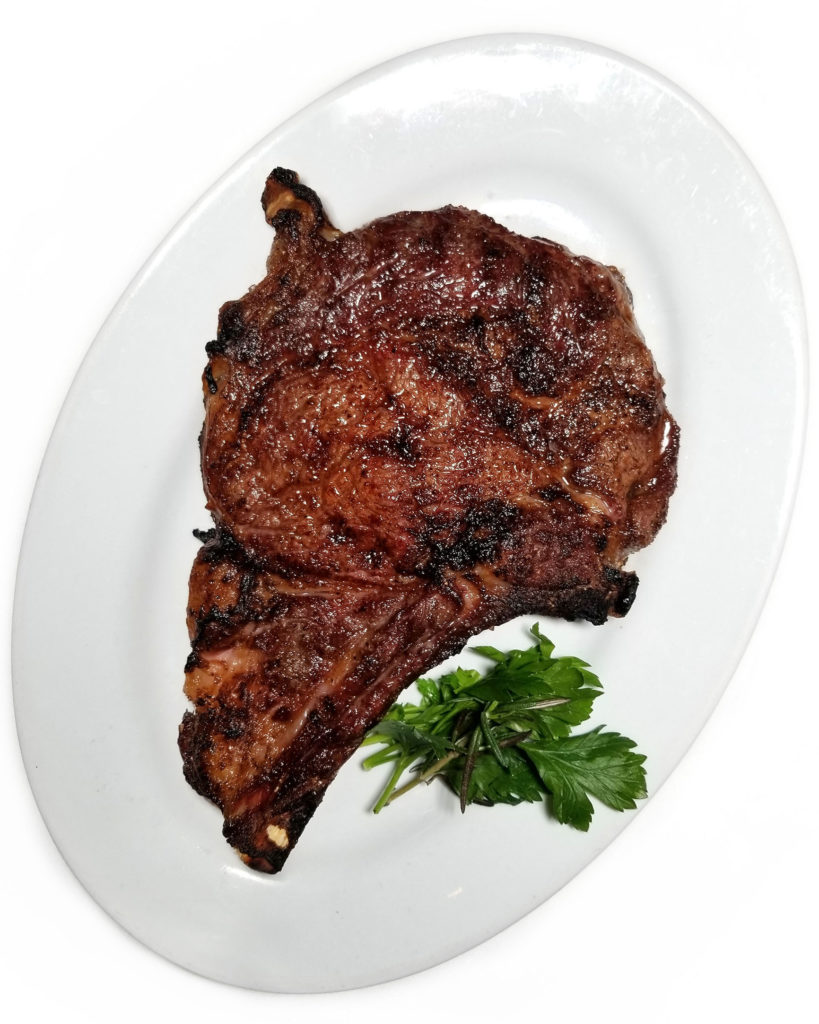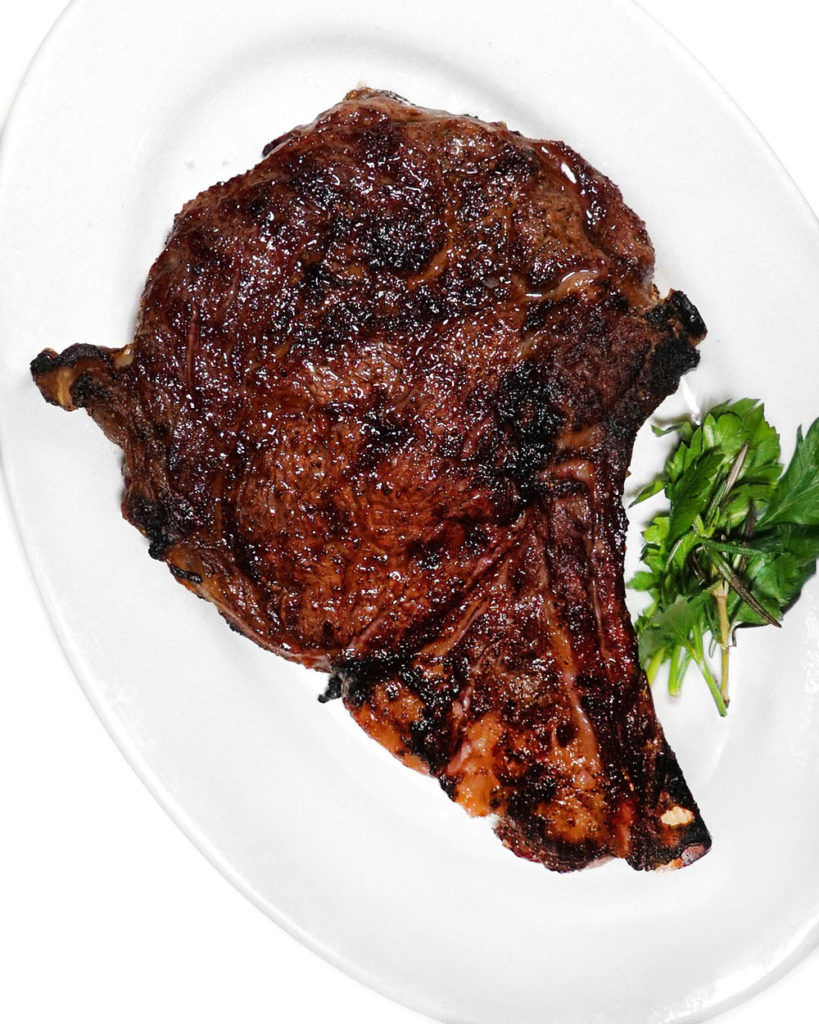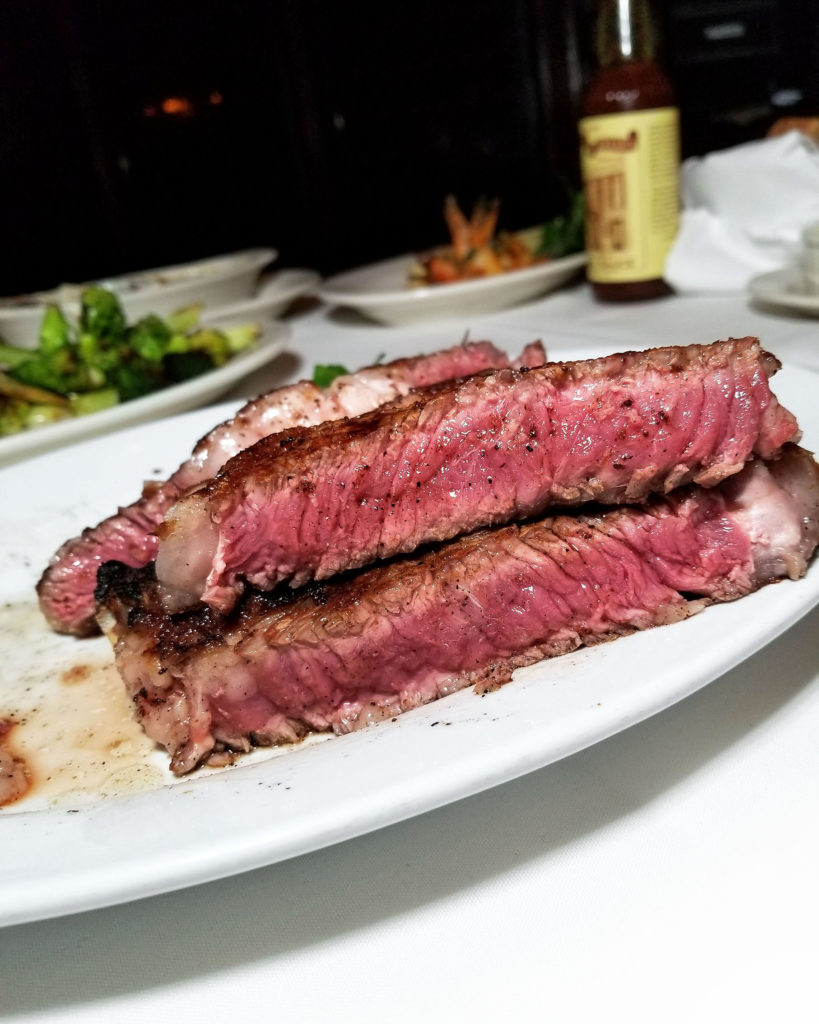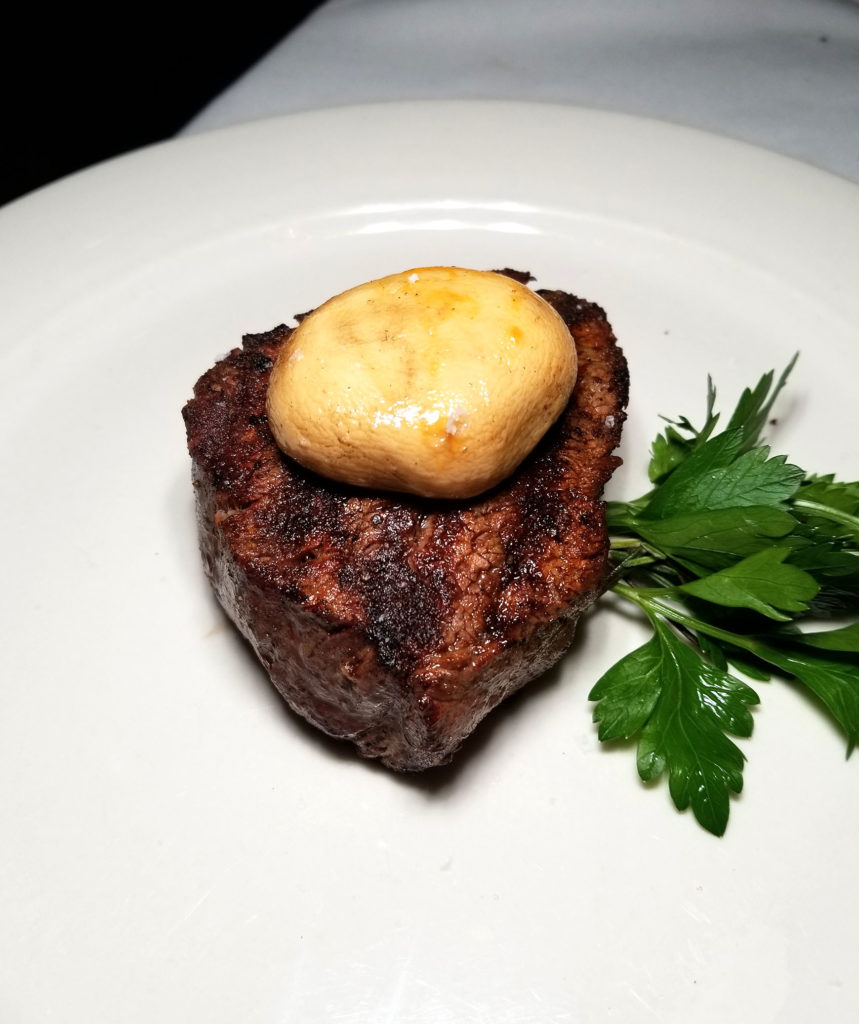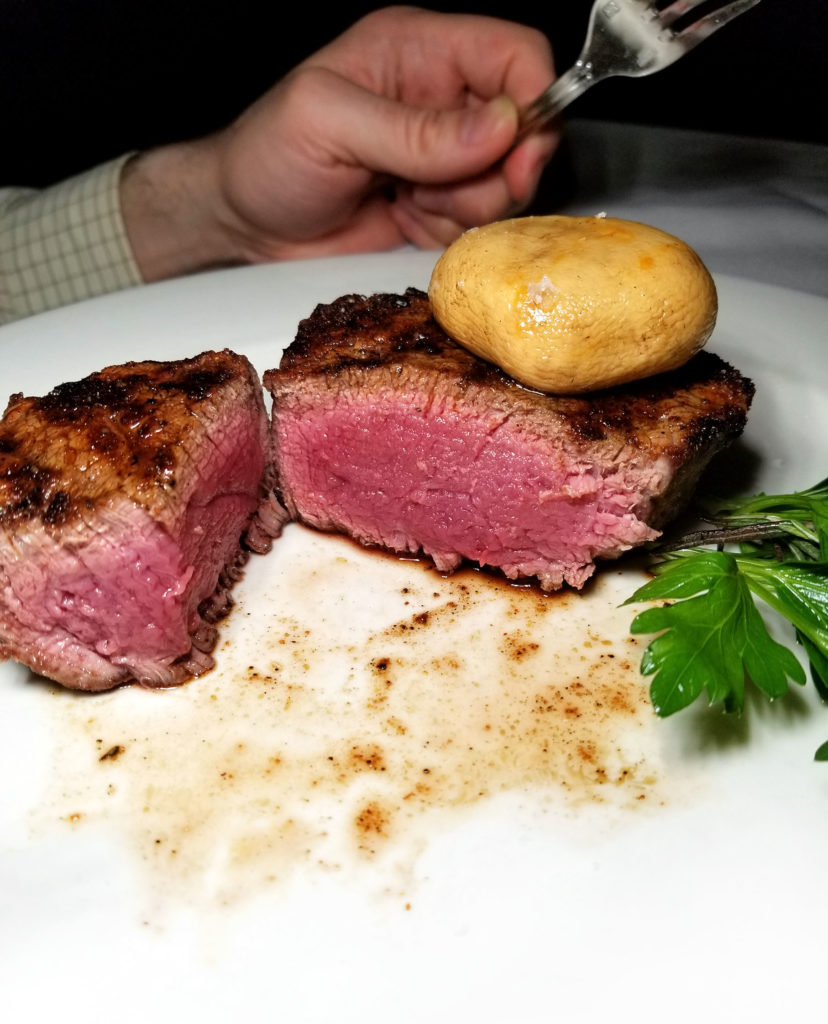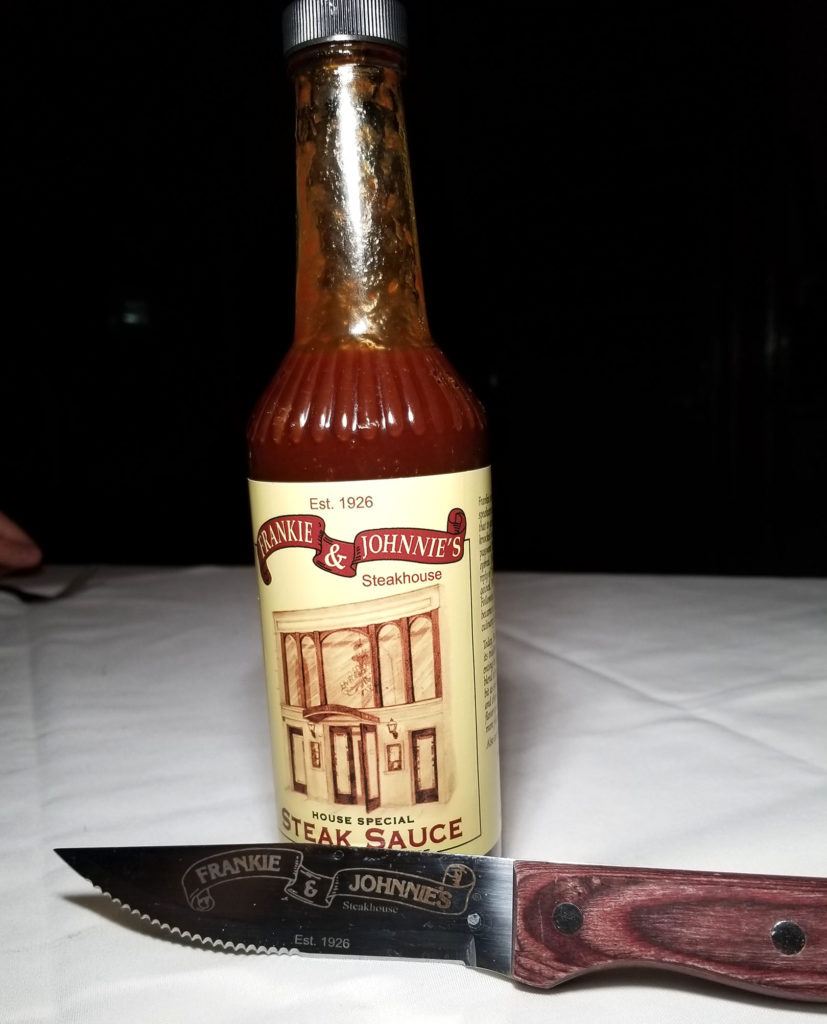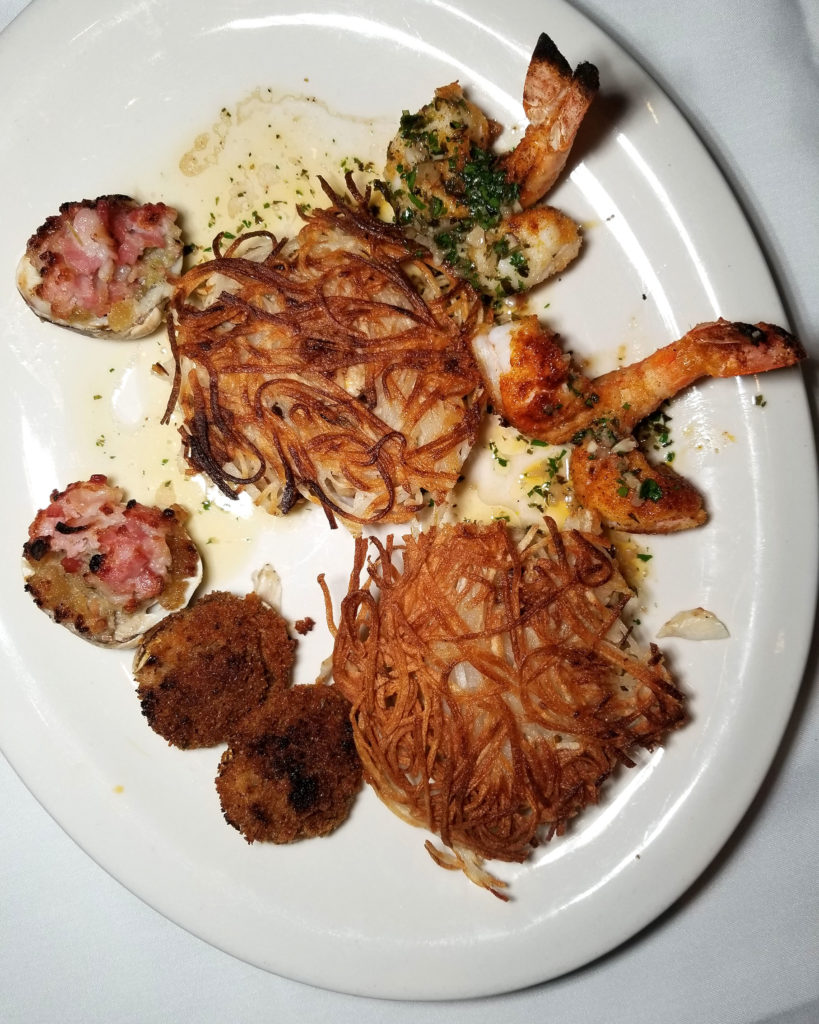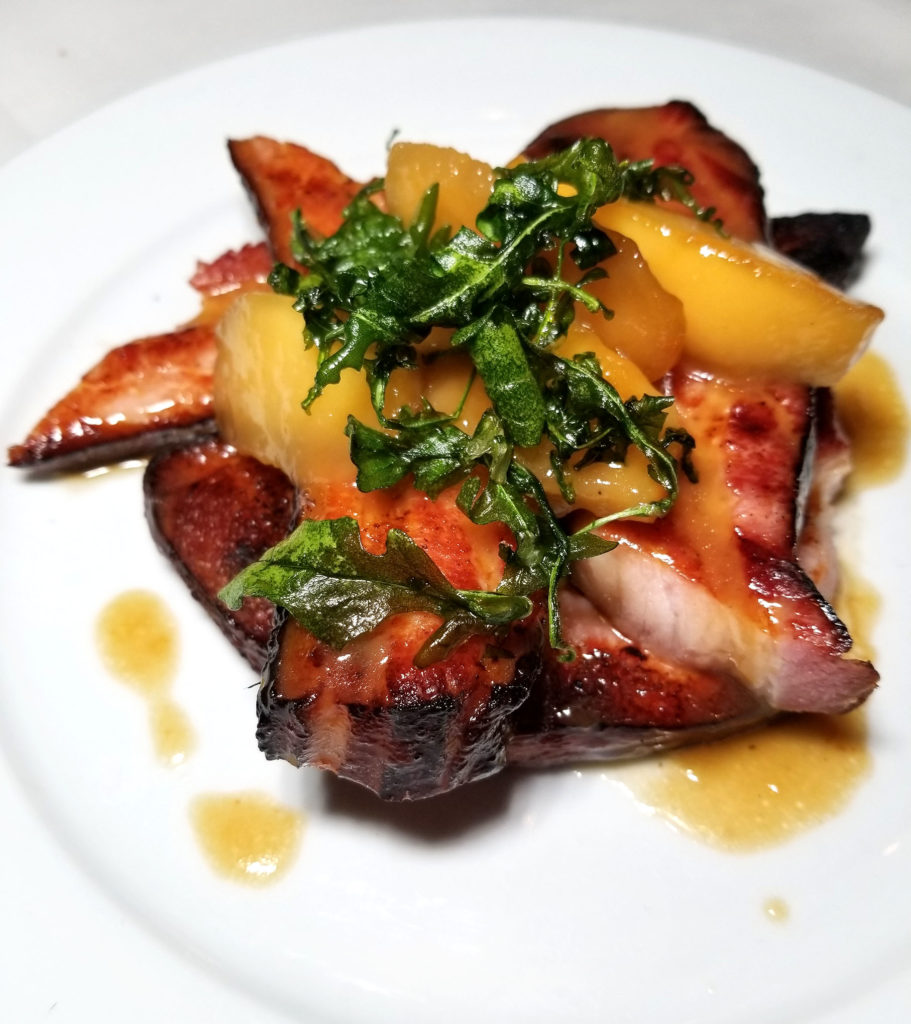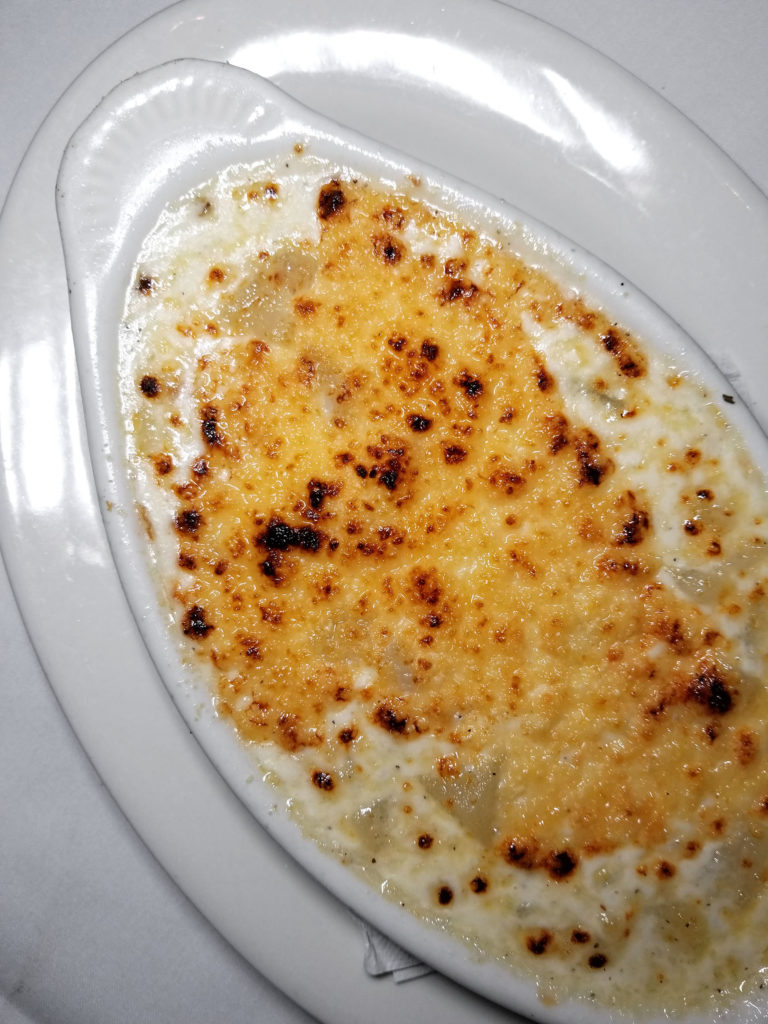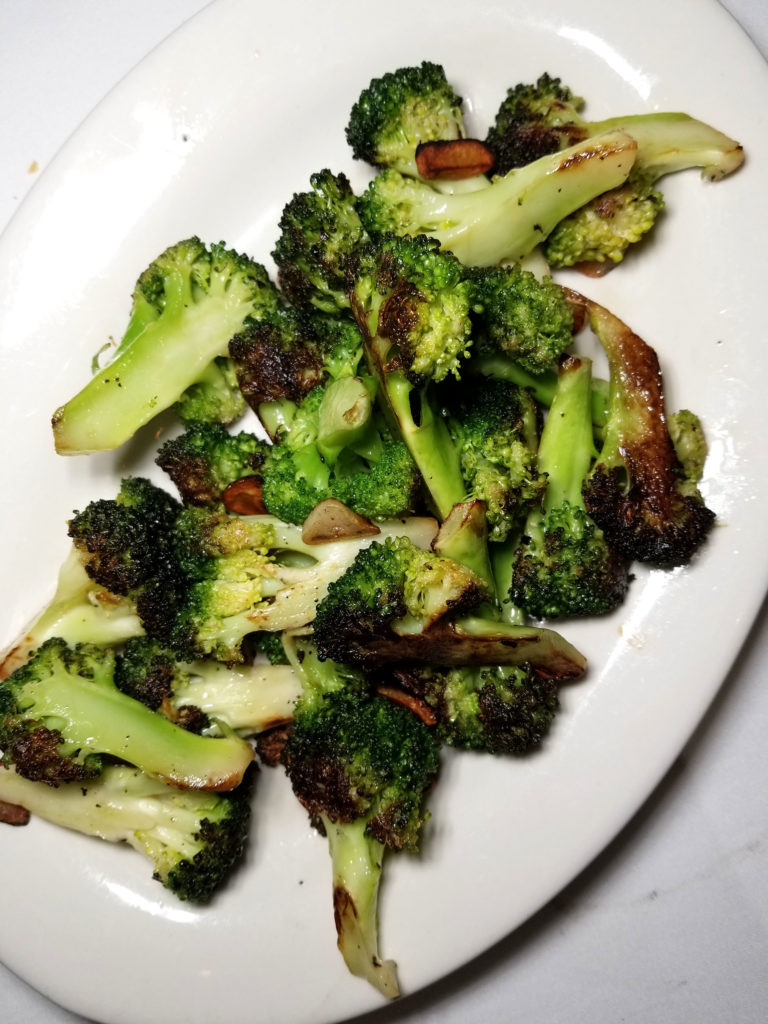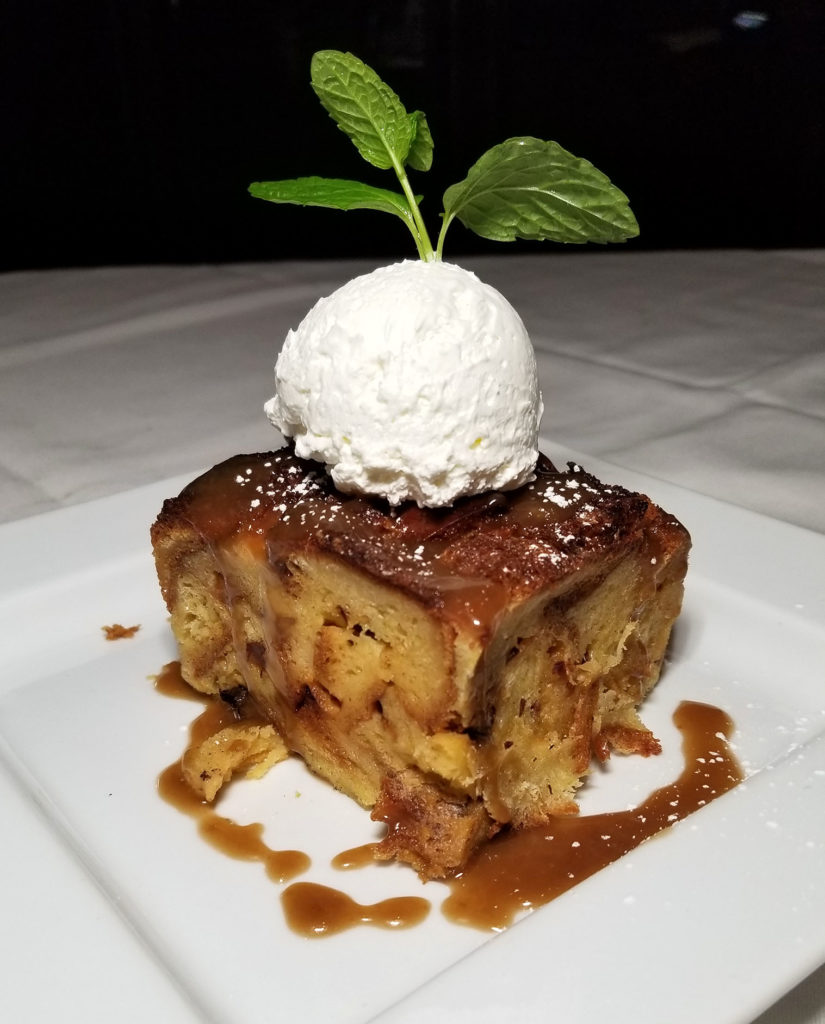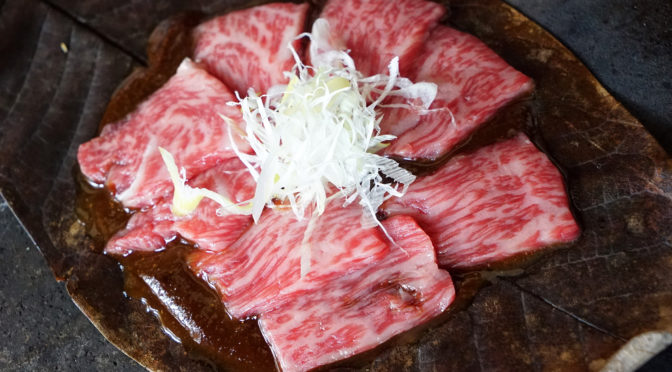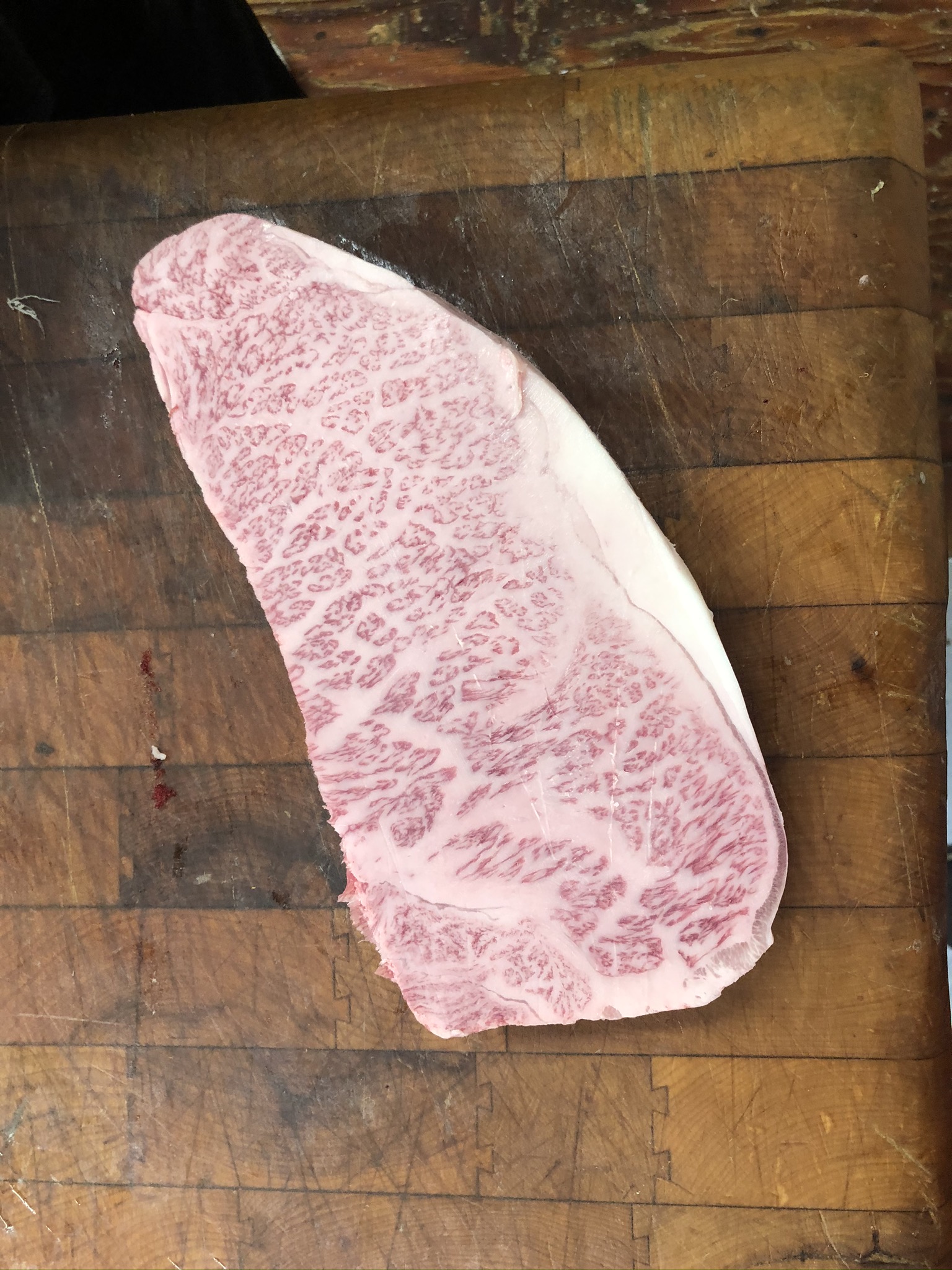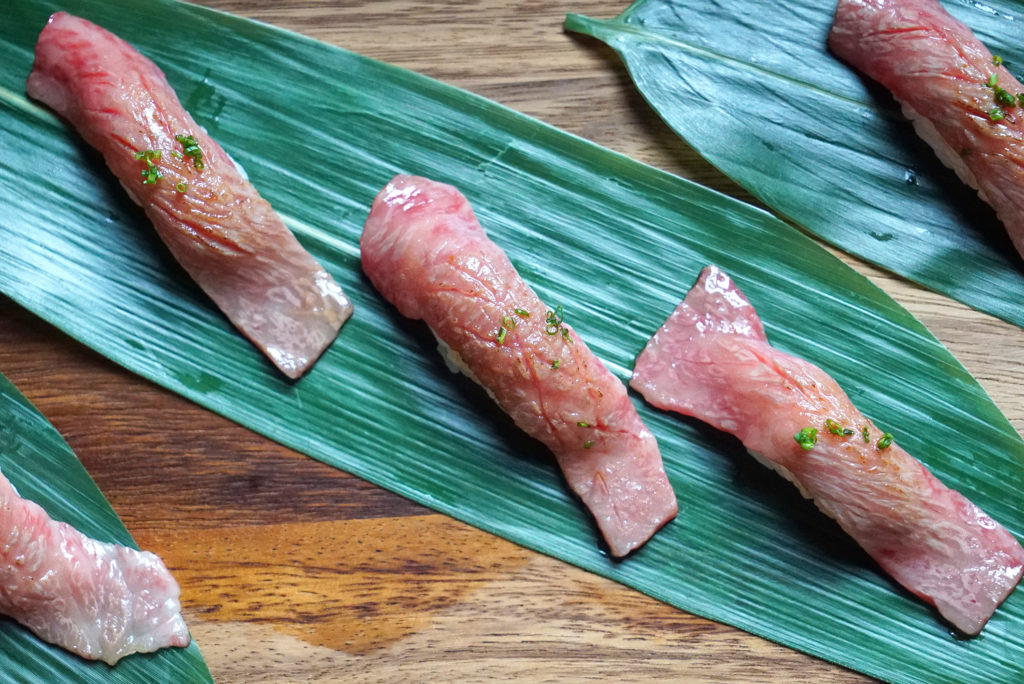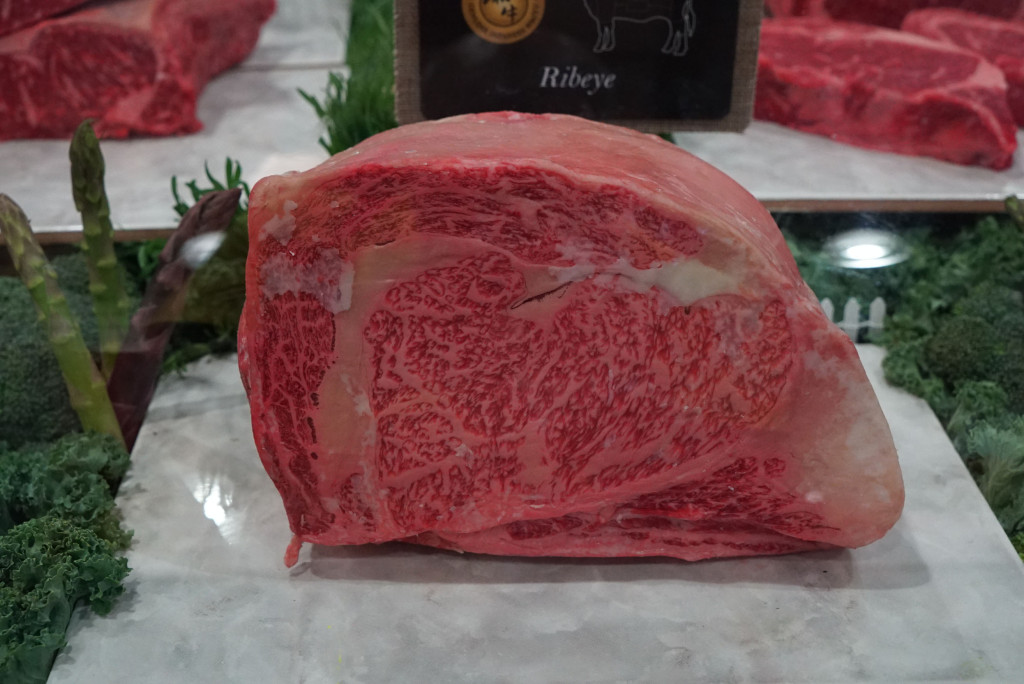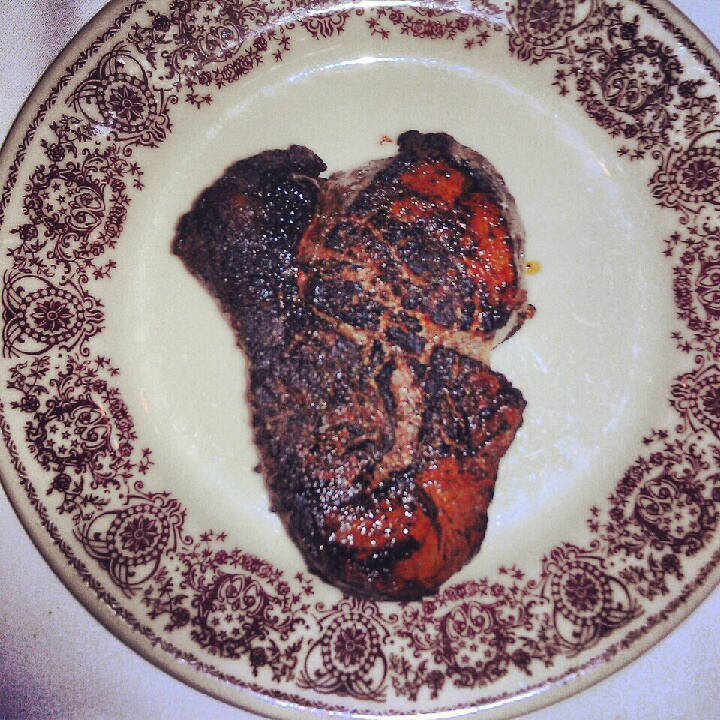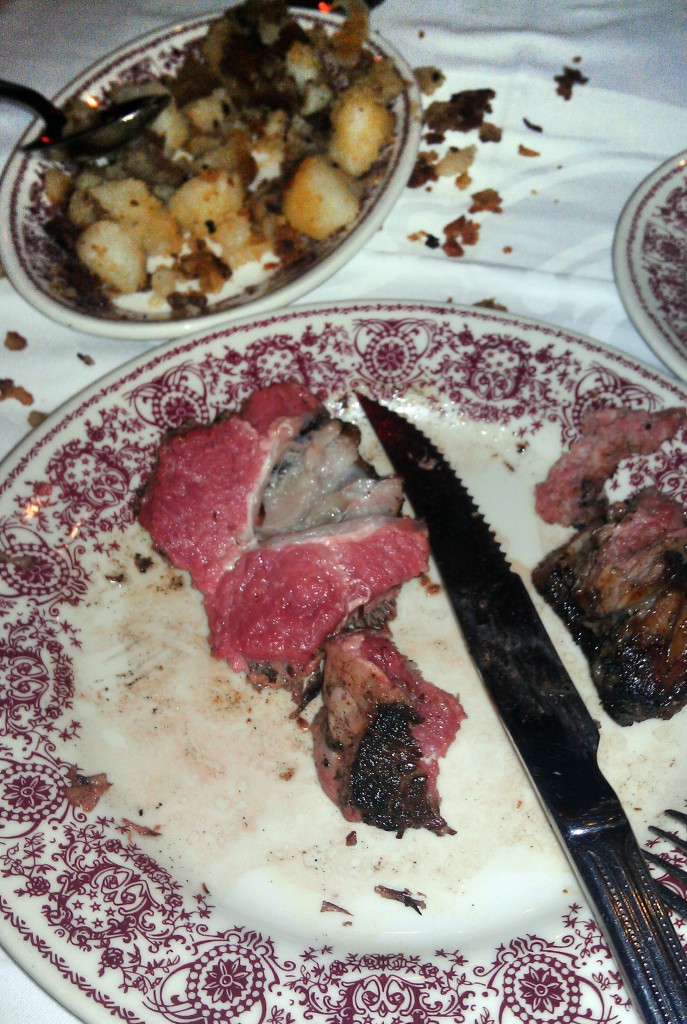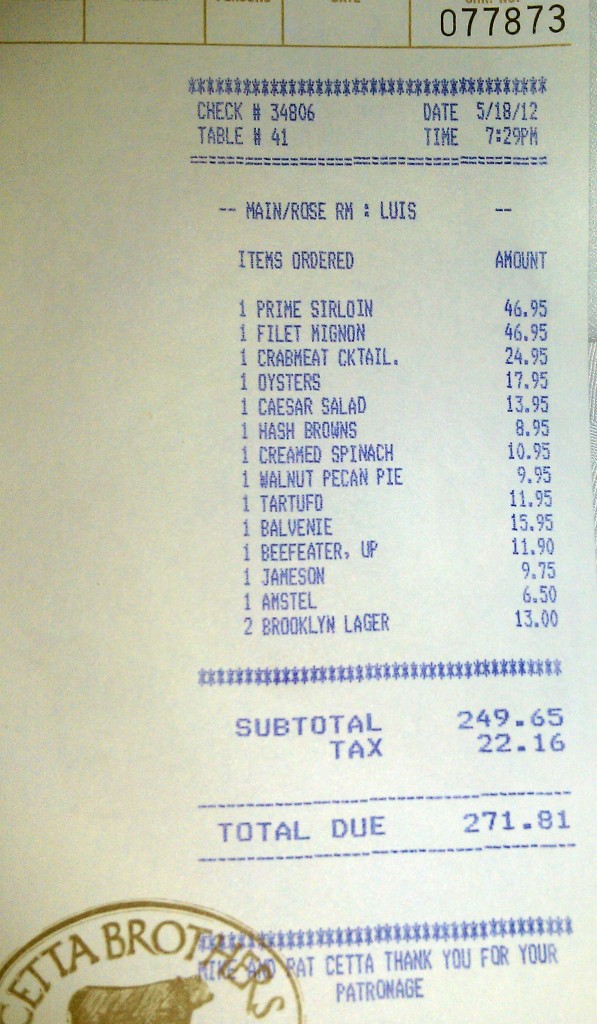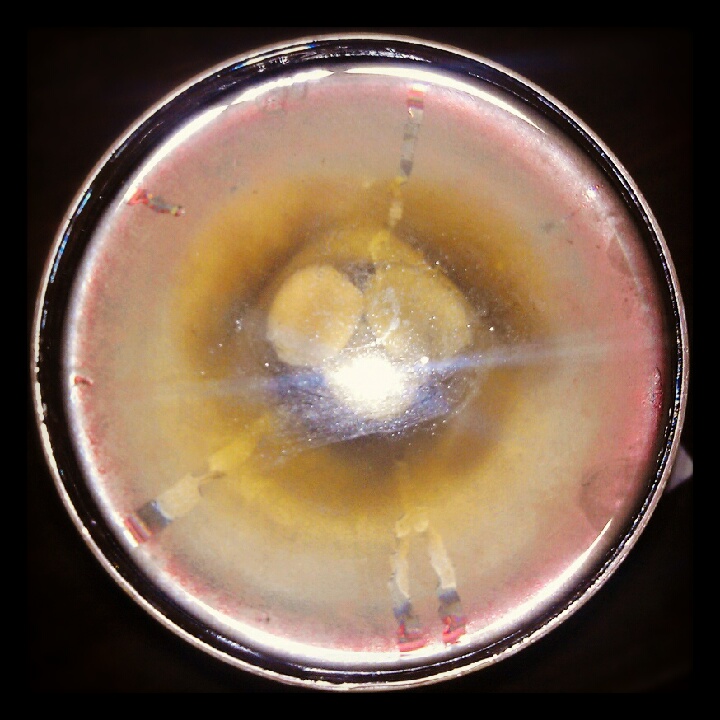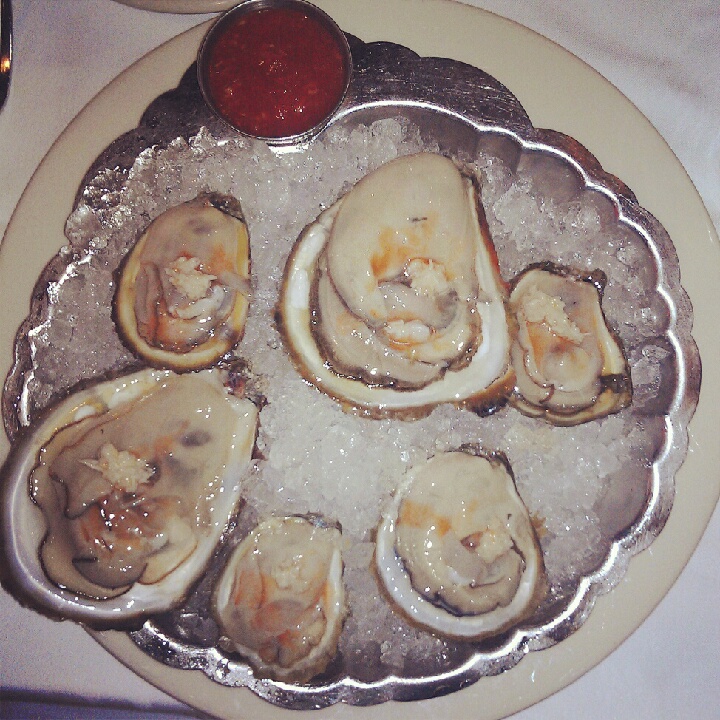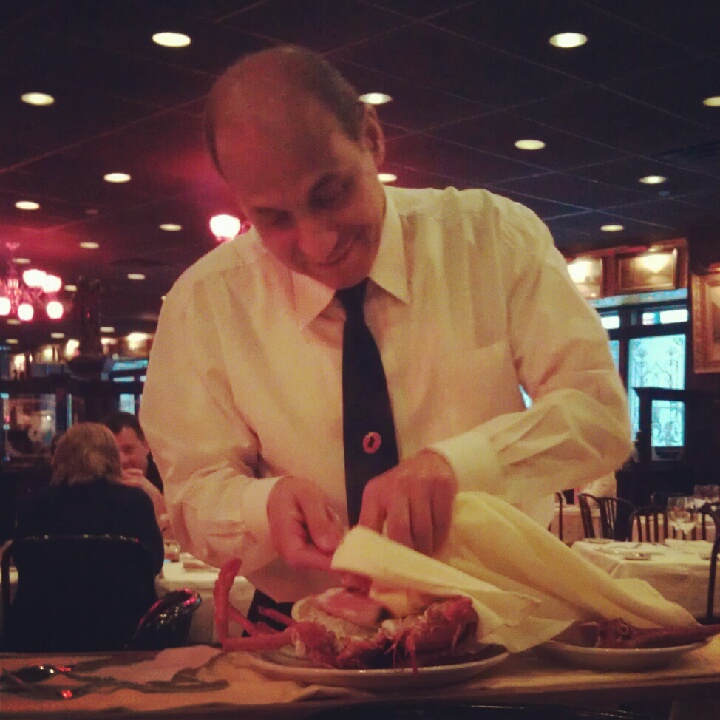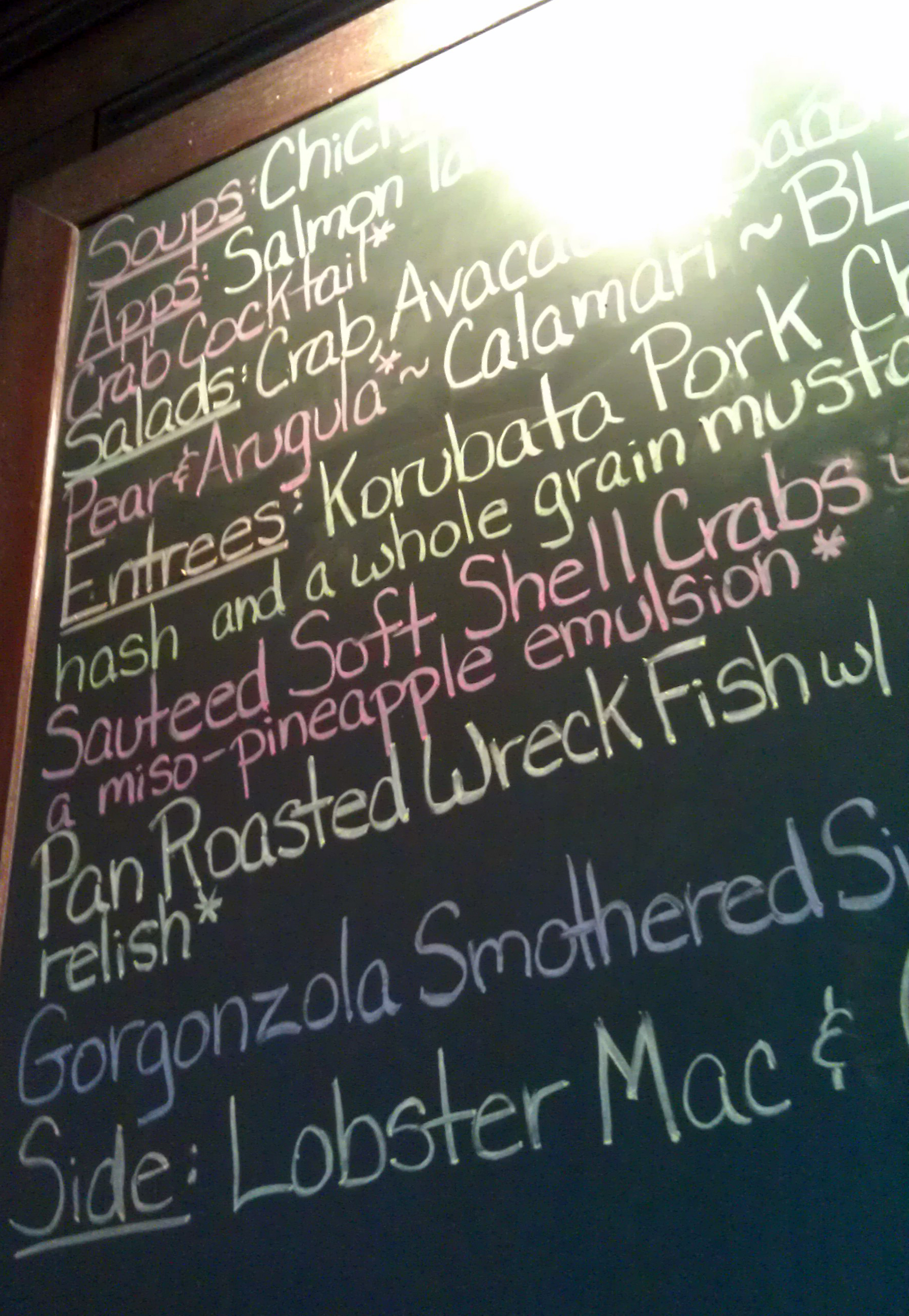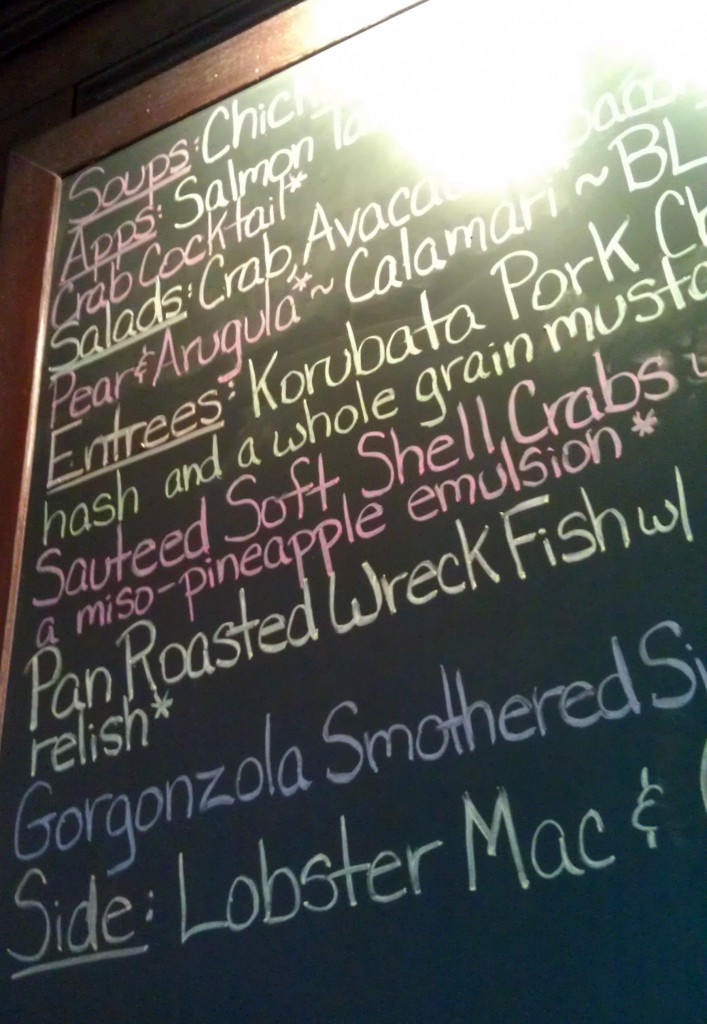Marbling: Refers to the quality and look of the intra-muscular fat that is, ideally, evenly dispersed within the meat.
Choice: High quality, widely available beef (top 54% quality).
Prime: Highest in quality and marbling, limited supply (top 3% quality).
Certified Angus Beef (CAB): A program founded by breeders in an effort to certify that Angus cattle have consistent, high-quality beef with superior taste. The terms Angus Beef or Black Angus are loosely and commonly misused or confused with CAB in the food service industry. CAB cannot be legally used by an establishment that is not licensed to do so.
Wagyu: A term used to describe 4 Japanese breeds of cattle that are genetically predisposed to intense marbling of fat. For more info on this delicious shit, see THIS POST. There’s also two grading scales WITHIN the world of Wagyu. First is a letter and number pairing: A, B, or C and 1-5 within each grade, with A5 being the most marbled and C1 being the least. Then there is the BMS (Beef Marbling Standard) scale of 1-12. The best quality you can get in the US is A5 BMS 11. When it’s on a menu, it’s pretty fucking expensive, and usually sold by the ounce.
Kobe: Basically, this is beef from drunk, fat, happy Japanese cows, or so the myth goes. Under japanese law, Kobe beef is a very specific product from a specific place, from one breed of cattle, with very strict rules. It is said that the cattle are hand-fed using high-energy feed, including beer and beer mash, to ensure tenderness and high fat content. The cattle are also hand-massaged to reduce stress. I guess its only fair to pamper them if we are going to slice them up and grill them! NOTE that REAL Kobe beef is NOT available in the USA, so if you see it on a menu, understand that it is a knock off (though probably still very good) from a place other than Japan. For more info on this delicious shit, see THIS POST.
Grass-Fed: Cattle that have been raised exclusively on forage.
Grain-Fed: Cattle raised primarily on forage, but “finished” in a feedlot with grains to fatten them. Also known as “Grain-Finished.”
Certified Organic: Beef that’s labeled as such comes from animals whose production must meet a set of USDA standards. These animals are not allowed to receive any antibiotics or growth promotants, and can only be fed organic grass or grain. Certain vitamins, minerals and vaccines are allowed to keep the livestock healthy. Organically raised cattle may be finished in feeding operations but they must have access to pasture and be fed only organic feedstuffs.
Antibiotic-Free: It is a law that producers must wait a certain amount of time after administering an antibiotic before an animal can be slaughtered for consumption, to ensure that no traces of the antibiotic remains within the beef. These “withdrawl times” are strictly monitored and vary from 0-60 days based on the substance being administered. That means you can be confident that there are no antibiotics in the flesh of the meat you buy at stores or restaurants. Despite that safety assurance, U.S. consumer concern about using antibiotics in animal feed has led to a niche market of products with specialty labels. “Never ever” means that the animal was never given an antibiotic, for example, throughout its entire lifetime. Other labels tout the fact that the animal was not given any antibiotics in the last 60 days of it’s life, or from various points of its life cycle onward.
Dry Aged: After the animal is slaughtered and cleaned, cuts will be placed in a cooler. The beef must be stored near freezing temperatures. Also, only the higher grades of meat can be dry aged, as the process requires meat with a large, evenly distributed fat content. For these reasons one seldom sees dry-aged beef outside of steak restaurants and upscale butcher shops. The key effect of dry aging is the concentration of flavor. The process changes beef by two means. First, moisture is evaporated from the muscle. This creates a greater concentration of beef flavor and taste. Second, the beef’s natural enzymes break down the connective tissue in the muscle, which leads to more tenderness. The process of dry-aging usually also promotes growth of certain fungal mold species on the external surface of the meat. This doesn’t cause spoilage, but actually forms an external “crust” on the meat’s surface, which is trimmed off when the meat is prepared for cooking. These fungal species complement the natural enzymes in the beef by helping to tenderize, enhance and increase the flavor of the meat. Dry aging of beef is rare in super-markets in the United States today, due to the significant loss of weight in the aging process. Dry-aging can take 15–28 days, sometimes purposely done for longer periods of time, and will see up to a third or more of the weight lost as evaporated moisture.
Wet Aged: Wet-aged beef is beef that has typically been aged in a vacuum-sealed bag to retain its moisture. This is the dominant mode of aging beef in the United States today. Wet-aging is popular because it takes less time (typically only a few days) and none of the weight is lost in the process.
Broiled: Heat source from above, preferably an open flame.
Grilled: Heat source from below, preferably a flame heating a metal grill.
Seared: Cooked on a hot flat usually metal surface, like in a pan.
Sous Vide: Cooked in a sealed bag that is submerged in a temperature controlled bath of hot water.
Confit: Cooked slowly at low temperatures while submerged in liquified fat or oil.
Braised: Cooked slowly at low temperatures in a reducing liquid such as wine or broth.
Roasted/Rotisserie: Cooked slowly in surrounding heat, such as in an oven or over a pit, often rotated on a spit to ensure even contact with the heat source on all sides of the meat throughout the cooking process.
Fried: Cooked in hot oil or fat/lard.
Well Done: Grey throughout.
Medium Well: Slightly pink center, thick grey edges.
Medium: Pink center, grey edges.
Medium Rare: Pink throughout with slightly red center, seared edges.
Rare: Red center, pink edges with a sear on the outside.
Black & Blue: Nearly raw.

